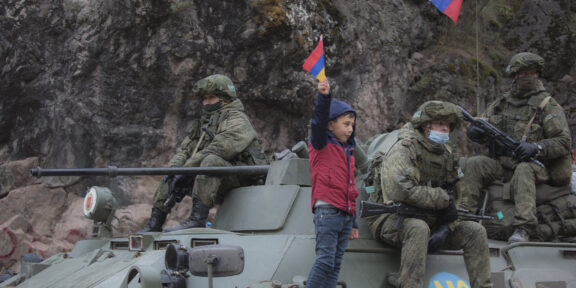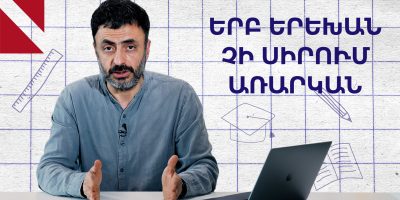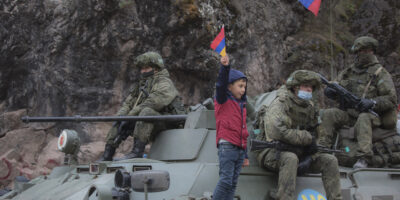Իրանում փետրվարի 21-ին տեղի ունեցան խորհրդարանական արտահերթ ընտրություններ, որոնց արդյունքում պահպանողականները նոր ձևավորվելիք խորհրդարանում բացարձակ մեծամասնություն ստացան։ Ի՞նչ ազդեցություն կունենան ընտրությունները Իրանի ներքաղաքական կյանքի և ԱՄՆ-Իրան հարաբերությունների վրա։
«Խաչմերուկ» հաղորդաշարի շրջանակում քաղաքագետ Բենիամին Պողոսյանը վերլուծում է միջնաժամկետ հեռանկարում Իրանի արտաքին և ներքին քաղաքական հնարավոր զարգացումները։ Հաղորդման երկրորդ մասում խնդիրը քննարկվում է իրանագետ Աննա Դավթյան-Գևորգյանի հետ։
Iran After Parliamentary Elections: Short-Term and Medium-Term Assessments
In recent years Iran has plunged into a state of permanent instability. Since the outbreak of large scale demonstrations from December 2017 to January 2018, the country has witnessed almost daily protests in several large and small cities, while a petroleum price hike in November 2019 brought about another huge wave of demonstrations. Until now the authorities have been able to keep situation under control. However, many Western experts are arguing that, given the country’s growing economic difficulties due to the U.S. “maximum pressure” campaign, the situation in Iran is reaching the point of no return, with state collapse or regime change looming. Others point out that the West has been waiting for regime change in Iran since 1979 and that Tehran still has the resources necessary to successfully resist mounting U.S. pressure.
Meanwhile, it should be noted that the Iranian political system is not monolithic. There are three key layers: conservatives rallied around Supreme Leader Khamenei, moderates under the leadership of current President Rouhani, and reformists, whose leaders are former President Khatami and 2009 presidential candidate Mousavi. They all support the Islamic Republic but have different views on certain foreign and domestic policy issues. While conservatives are staunchly anti-West and, at the same time,do not want to deepen Iran’s relations with Russia, moderates and reformers argue for better relations either with the West or with growing Eurasian powers, such as Russia and China. The West should take into consideration these differences and seek to open more channels of dialogue with moderates and reformers.
The February 21 parliamentary elections have significantly changed the balance of power in the legislature in favor of the conservatives. This was partly the result of the Guardian Council’s decision to deny the registration of many moderate and reformist candidates. Most probably the 2021 presidential elections in Iran will also result in the victory of a conservative candidate. Thus, beginning in 2021, Iran will take a tougher position against the U.S. If President Trump is reelected in November 2020, the upcoming four years will witness raising tensions in U.S. – Iran relations. However, all actors involved in Middle Eastern geopolitics have a clear understanding that Iran is neither Iraq, nor Syria, and any military clash with Tehran will have catastrophic results. Thus, all regional players should do their best to avoid such a worst-case scenario and make efforts to manage U.S. – Iran tensions.
CivilNet thanks the Friedrich Ebert Stiftung (FES) for their cooperation and support.














